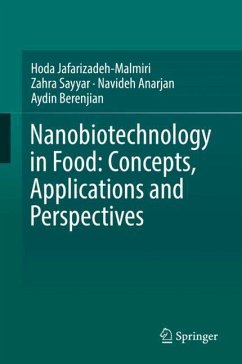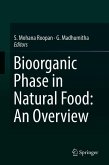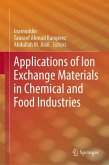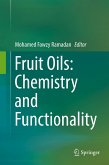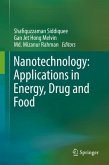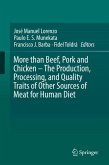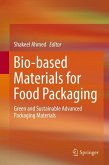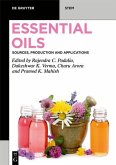This text focuses on the many benefits of the use of nanobiotechnology in the food industry. Each aspect of nanobiotechnology use is covered in depth, from food processing to packaging to safety and quality control. The authors outline the definition and history of nanobiotechnology and cover novel technologies for its use in the food industry, including the advantages and challenges for food scientists. Individual chapters focus on the food industry's use of nano-additives, nano-sensors, nano-encapsulation for nutrition delivery and considerations for commercialization. The potential hazards for nanoparticle use, as well as the future prospects of nanobiotechnology use in the food industry, are presented here in depth.
Nanobiotechnology in Food: Concepts, Applications and Perspectives explores the emerging developments in nanotechnology which make it increasingly applicable to the food industry. Nanoparticles are applied during food processing to improve nutritional quality, flow properties, flavor, color and stability, and also to increase shelf life by decreasing the activity of microorganisms. Nanotechnology is important for the development of healthier foods with lower fat, sugar and salt levels, and to overcome many food-related diseases. This book shows how producers and manufacturers can make great strides in food quality and safety by using nanotechnology.
Nanobiotechnology in Food: Concepts, Applications and Perspectives explores the emerging developments in nanotechnology which make it increasingly applicable to the food industry. Nanoparticles are applied during food processing to improve nutritional quality, flow properties, flavor, color and stability, and also to increase shelf life by decreasing the activity of microorganisms. Nanotechnology is important for the development of healthier foods with lower fat, sugar and salt levels, and to overcome many food-related diseases. This book shows how producers and manufacturers can make great strides in food quality and safety by using nanotechnology.

